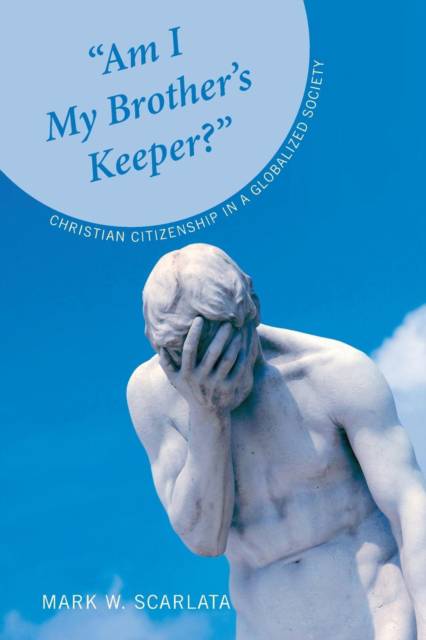
Bedankt voor het vertrouwen het afgelopen jaar! Om jou te bedanken bieden we GRATIS verzending (in België) aan op alles gedurende de hele maand januari.
- Afhalen na 1 uur in een winkel met voorraad
- In januari gratis thuislevering in België
- Ruim aanbod met 7 miljoen producten
Bedankt voor het vertrouwen het afgelopen jaar! Om jou te bedanken bieden we GRATIS verzending (in België) aan op alles gedurende de hele maand januari.
- Afhalen na 1 uur in een winkel met voorraad
- In januari gratis thuislevering in België
- Ruim aanbod met 7 miljoen producten
Zoeken
"Am I My Brother's Keeper?"
Christian Citizenship in a Globalized Society
Mark W Scarlata
Paperback | Engels
€ 33,45
+ 66 punten
Uitvoering
Omschrijving
In a wide-ranging meditation on the Cain and Abel narrative, Mark Scarlata draws out theological motifs relevant to Christian discipleship in a modern Western context. Taking his cue from Augustine's City of God, Scarlata brings to light what it means for a Christian to be a citizen of the heavenly city in this midst of a twenty-first-century globalized society. He argues that Christians can no longer think of discipleship merely as a personal, individual undertaking, but must recognize their role and responsibility as citizens in a global community. Each chapter raises questions like: How do we offer our best in worship when we live in a world driven by consumerism? How can we love others through our participation in the global economy? Are our lifestyles treating the environment in a way that is pleasing to God? And, how do we authentically connect to each other in a digital age of social media and mobile technology? These and other issues are addressed in relation to scenes from the Cain and Abel story. Each discussion highlights ancient Jewish and Christian interpretation as well as how a particular topic is understood within the broader context of the Old and New Testaments. Scarlata then offers ways that Christians might respond to the cultural shifts experienced by this generation and encourages readers to rethink what it means to be a citizen of God's kingdom with a local and global awareness in every aspect of life.
Specificaties
Betrokkenen
- Auteur(s):
- Uitgeverij:
Inhoud
- Aantal bladzijden:
- 170
- Taal:
- Engels
Eigenschappen
- Productcode (EAN):
- 9781620324622
- Verschijningsdatum:
- 14/05/2013
- Uitvoering:
- Paperback
- Formaat:
- Trade paperback (VS)
- Afmetingen:
- 150 mm x 226 mm
- Gewicht:
- 408 g

Alleen bij Standaard Boekhandel
+ 66 punten op je klantenkaart van Standaard Boekhandel
Beoordelingen
We publiceren alleen reviews die voldoen aan de voorwaarden voor reviews. Bekijk onze voorwaarden voor reviews.









